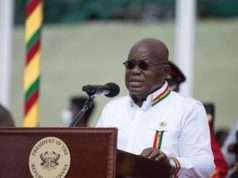French authorities on Friday responded to the revoking of five military cooperation agreements with its former colony Niger by a week-old military government there, saying while it took note of the decision, those deals had been signed with Niger’s “legitimate authorities”.
Amadou Abdramane, spokesperson for the coup makers who ousted the West African country’s democratically elected President Mohammed Bazoum, announced the severing of the deals late on Thursday on national television, adding that a diplomatic notice would be sent to France to that effect.
Niger also suspended broadcasts of French state-funded international news outlets France 24 and RFI – drawing condemnation from the French foreign ministry.
In a statement on Friday, France’s foreign ministry said Paris and the international community only recognise Bazoum’s government as the “legitimate authorities”.
Niger, which gained its independence from France in 1960, became one of the West’s reliable partners in fighting armed groups in Africa’s Sahel region as anti-French sentiments grew in Mali and Burkina Faso.
France has between 1,000 and 1,500 troops in Niger, which borders seven countries including Libya, Chad and Nigeria, and hosts more than 2,000 Western troops, mostly from the United States and France.
Niger is also the largest recipient of US military assistance in the region, having received an estimated $500m since 2012.
Since the coup, various Western nations have cut aid, even though Niger is one of the poorest nations in the world and relies on outside help for nearly half of its annual budget.
The most recent was Friday’s announcement by the Dutch government of a temporary suspension of its direct cooperation with Niger’s government.
The Netherlands, which was supporting programmes in development cooperation and security through the Nigerien government, said in a statement that it does not want to support coup perpetrators.
The Dutch government added that it was looking into sponsoring other humanitarian programs in Niger that are run through the United Nations, other international organizations, or local partners.









































